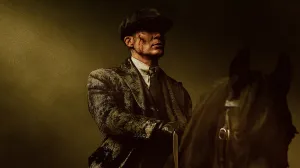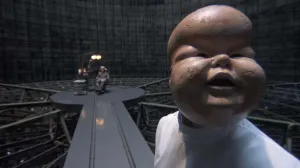Christopher Nolan’s breakout movie was 2001’s Memento, a murder mystery about a man with a fractured memory, but with Nolan opting to tell the story in a non-linear fashion in order to replicate for the audience what memories were like for our main character, the film earned critical acclaim. Over the course of his career, Nolan would deliver other complex structures with his movies, like Inception, Dunkirk, and Tenet, with the filmmaker recently recalling that he embraces these unconventional storytelling methods to more fully immerse the audience in the stories, similar to how the earliest movies kept audiences on their toes.
Videos by ComicBook.com
“I don’t see movies in terms of a balance between simplicity and complexity, I think it’s really about mystery. And our expectations of films, really my whole life, but really since the 1950s, they’ve been informed by television and the expectations of television,” Nolan shared with the YouTube channel HugoDécrypte about his films’ complex nature. “And sometimes that’s unfortunate. So I often use non-chronological structures, non-linear structures. That was something that was done a lot in the silent era, in early talkies, right up until television comes along. And then television sort of imposes a more linear, a more simple approach, because of the way in which we watched television from the 1950s onwards.”
He continued, “Then when home video DVD comes along and now streaming we can once again be more adventurous because you can watch something, you can stop it, you can rewind something, have a look at it. And so we can make more dense narratives, more complicated narratives.”
That’s not to say that all Nolan movies are overly complex, as his three Batman films were all relatively traditional in how their stories unfolded, but by manipulating a story’s structure, you can connect with audiences in entirely new ways.
“But ultimately, the thing about the experience in a movie theater with an audience, is it should be about mystery. You don’t want to understand the entire story right from the beginning. Otherwise, there’s nothing to unfold,” Nolan admitted. “And so, really, the job of the filmmaker is to try to be a little bit ahead of the audience, not too far ahead, not too far behind. When you’re behind the audience, the audience is understanding things before you’re explaining them, the audience gets very frustrated in a different way.”
Nolan’s latest film, Oppenheimer, does use time jumps to tell its story, as well as differentiating characters’ perceptions with the use of either color or black-and-white photography.
What do you think of Nolan’s storytelling techniques? Let us know in the comments!








